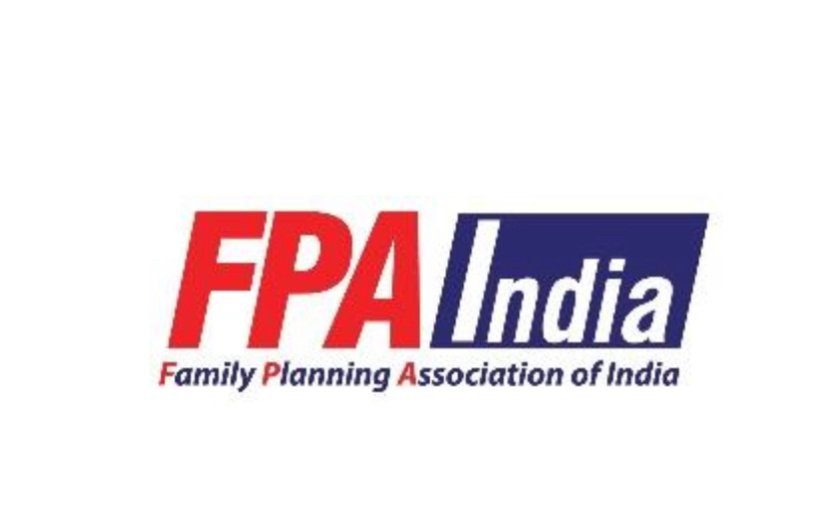Family Planning Association of India (FPA India) is a pioneer organization in sexual and reproductive health in India, working since 1949 to advance the right to sexual and reproductive health information and services for all. FPA India provides a wide range of services, including family planning, HIV prevention, maternal health, and adolescent sexual health education.
The global humanitarian crisis displaces about 34000 each day due to natural hazards, climate change, armed conflict, epidemics, complex emergencies, etc. Women and girl’s need for reproductive health care is not suspended in crises. One-quarter of people affected by crises are women and girls aged 15-49. One in five women are likely to be pregnant and one and five of all deliveries will experience complications. In crisis settings there is also a heightened risk of early marriage, rape and sexual violence, unsafe abortions, unattended births, SGBV and un intended pregnancies. Transmission rates of STIs, including HIV, increase in emergencies. Adolescents may feel fearful, stressed, bored or idle. They may find themselves in risky situations that they are not prepared to deal with such situations. Very young adolescents (10-14 years), especially girls, are at risk because of their dependence, lack of power, and their lack of participation in decision making processes. they may not recognize the sexual nature of abusive or exploitative actions. At this situation there is urgent need for access to confidential and safe sexual and reproductive health services and referral pathways. In such situation there is breakdown of mechanisms for protection and service delivery. At this situation there is urgent need for access to confidential and safe sexual and reproductive health services and referral pathways. The Family Planning Association of India (FPA India) has played a crucial role in addressing humanitarian crises across the country. Through its implementation of the Minimum Initial Service Package (MISP) for reproductive health, FPA India has provided vital support to vulnerable populations affected by natural disasters, conflicts, and other emergencies.
MISP is an internationally recognized set of priority actions designed to address reproductive health needs during the onset of a humanitarian crisis. It focuses on preventing excess maternal and neonatal mortality, managing sexual violence, and ensuring access to contraception, among other essential services. FPA India has integrated MISP into its emergency response framework, ensuring the continuity of SRH services even in the most challenging situations.

In recent years, FPA India has successfully implemented MISP during several critical humanitarian crises:
– Floods and Cyclones: In regions hit by severe floods and cyclones, such as Kerala, Bhubaneswar, and Odisha, FPA India deployed rapid response teams to ensure that reproductive health services were not disrupted. These services included providing safe delivery kits, ensuring access to contraception, and offering psychosocial support to survivors of gender-based violence.
– COVID-19 Pandemic: During the unprecedented COVID-19 pandemic, FPA India mobilized its resources to address gaps in SRH services. With the healthcare system under immense strain, the organization ensured access to contraceptives, antenatal care, and essential maternal health services, especially in rural and underserved areas.
– Conflict Crises: FPA India has extended its support to communities in conflict-affected areas by setting up temporary health camps, providing emergency contraception, and addressing the reproductive health needs of displaced populations in Manipur.
To ensure comprehensive SRH services during crises, FPA India has worked closely with local governments, international partners, and other non-governmental organizations. This collaborative approach has been instrumental in scaling up the MISP initiative and ensuring a coordinated response to humanitarian emergencies. Additionally, FPA India conducts training for healthcare workers and CSO Partners on MISP protocols and empowering local communities to manage SRH services during crises.
As India continues to face natural disasters and other humanitarian challenges, FPA India remains committed to its mission of ensuring access to life-saving SRH services. By strengthening its partnerships and continuing to prioritize MISP in its emergency response efforts FPA India is well-positioned to meet the reproductive health needs of those affected by future crises.
Locally, at Nagaland Branch here in Kohima, as part of Humanitarian response preparedness. We have started conducting many trainings, meetings and orientations with different stakeholders besides learning ourselves as well through various trainings conducted by the Hqr at Mumbai. We have also started observing national and international humanitarian days like World Humanitarian day which was on 19th August, Disaster Risk Reduction day on which falls on 13th October annually. The importance of Internationally accepted MISP for SRH during disaster or emergencies has been advocated and lobbied with stakeholders at the district level with CMO, DDMA and CSOs and partner agencies including media sensitization and for general public awareness. More efforts needed for wider population and crucially the young population to be aware and skilled to face any eventuality of disaster, while we must be prepared with pre-positioned essentials, like medicines, equipment and skills to be a resilient society in the face of any disaster.
This is why media meets becomes crucial and important to bring about wide publicity and accountability with regard to skills and preparedness.
– Issued by FPA India, Nagaland Branch


